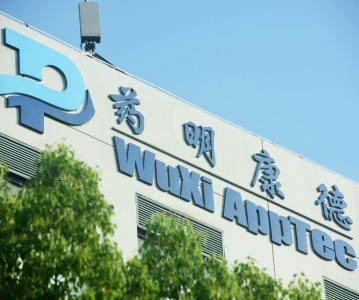MRC Technology Announces Humanization of Anti-Tau Monoclonal Antibody for Alzheimer’s Disease Therapy

MRC Technology has successfully humanized an anti-tau monoclonal antibody, which has applications in the treatment of Alzheimer’s and related neurodegenerative tauopathies. The humanized tau antibody represents an important milestone for developing a disease modifying immunotherapy for Alzheimer’s disease. MRC Technology was contracted to humanize the antibody by AXON Neuroscience SE, a biotechnology company dedicated to the development of disease modifying immunotherapeutics and early diagnostics for Alzheimer's disease.
Alzheimer’s disease is characterized by the presence of neurofibrillary tangles consisting of diseased forms of protein tau. Tau cortical neurofibrillary tangles correlate well with the severity of cognitive impairment in Alzheimer’s disease and thus represent a valuable target for disease modifying therapy. Targeting disease modified tau appears to be a promising way to slow down or even stop progression of the disease.
Michael Dalrymple, Director of Business Development at MRC Technology, said: "We are very pleased with the outcome of this project and are hopeful that the positive evaluation results for the humanized antibody will prove to be a milestone in the development of effective treatments for this debilitating disease.”
“Treatment of Alzheimer’s disease is still recognised as an unmet medical need. Our company has considerable expertise in the area and I believe we are on the right track to developing an effective therapy that has the potential to stop progress of the disease,” commented Roman Sivak, Chief Executive Officer at AXON Neuroscience. “We thank MRC Technology for their invaluable support in humanizing this antibody, an essential step in its development as an immune-based therapeutic.”
Related News
-
News WuXi to sell CGT manufacturing unit to US-based Altaris LLC
At the tail end of 2024, Chinese-based CDMO WuXi AppTec announced the signing of their deal with private equity firm Altaris LLC, confirming the sale of WuXi Advanced Therapies, the cell and gene therapy manufacturing arm of WuXi AppTec. -
News Women in Pharma: Our hopes for 2025 and beyond
Our last instalment for 2024 of the Women in Pharma series brings you messages direct from the Informa Markets CPHI team as they discuss the advice and insights they have carried throughout their roles working at CPHI, and what they hope to see for the... -
News CPHI Milan Wrap-Up Report: Conference Highlights
Discover the emerging and trending topics of the pharmaceutical industry with our CPHI Milan Conference Highlights, with exclusive insight from pharmaceutical leaders and experts! -
News BIOSECURE Act not included in key defense spending bill for 2025
On December 7, 2024, the Biden administration revealed the 2025 National Defense Authorization Act, an annual defense bill specifying the budget and expenditures of the US Department of Defense. The controversial BIOSECURE Act was notably missing from ... -
News Lessons from CPHI Milan 2024: Sunny Intervals for Pharma Manufacturing?
As the 2024 CPHI conference wrapped up in Milan, we caught up with L.E.K. Consulting – a global strategy consulting firm with deep expertise in pharma manufacturing – to discuss evolving market perspectives and business outlook. -
News Trump 2.0: What does the US election result mean for the healthcare industry?
After Trump won the Presidential election in the US in early November, we take a look at some of the implications a new Trump administration could have on the health and pharmaceutical industry, and on US patients. -
News Women in Pharma: Reflections from Behind the Scenes
In this instalment of our monthly series, the team that brings you the Women in Pharma series each month sits down for a heart-to-heart on what the series means to them, and how they hope to continue their work in the future. -
News Scaling the Industry: CPHI Scale-Up Market interview with YSK Laboratories
For the first time, CPHI Milan hosted the CPHI Start-Up Market, expanding support for emerging and small-sized enterprises in their transition to the next level of growth. In this interview, we spoke with Yuvansh Khokhani, Managing Director of YSK Labo...
Position your company at the heart of the global Pharma industry with a CPHI Online membership
-
Your products and solutions visible to thousands of visitors within the largest Pharma marketplace
-
Generate high-quality, engaged leads for your business, all year round
-
Promote your business as the industry’s thought-leader by hosting your reports, brochures and videos within your profile
-
Your company’s profile boosted at all participating CPHI events
-
An easy-to-use platform with a detailed dashboard showing your leads and performance

.png)





